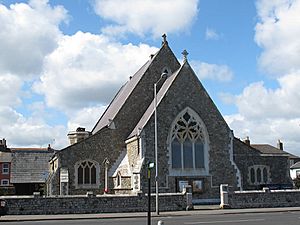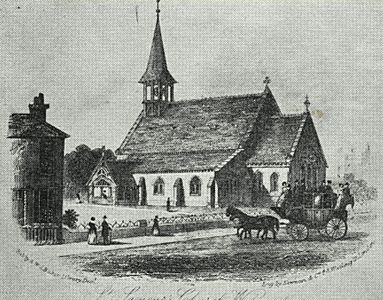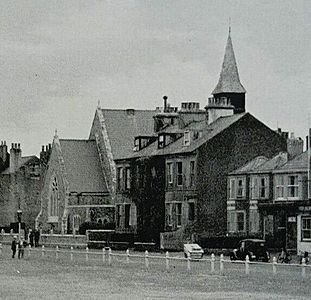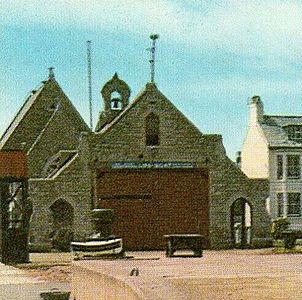St Saviour's, Walmer facts for kids
St Saviour's Church is a beautiful old church located right by the sea in Walmer, Kent, a town in the United Kingdom.
Contents
Building a New Church
The first stone for St Saviour's Church was put in place on August 15, 1848. A lady named Mrs. J.T. Bridges laid this special stone. Many people came to watch, and it was a bright, sunny day, making it a happy event.
Opening Day Celebration
The church was officially opened and blessed on July 2, 1849. The Archbishop of Canterbury came for the ceremony. After the church opening, a big meal was held for about 400 to 500 local people who needed help. They enjoyed roast beef and plum pudding, with music from a German band. A kind person named J.T. Bridges paid for this feast and also for most of the church's building costs. The Archbishop even joined the meal and spoke kindly to everyone, which made a big impression.
Who Designed the Church?
The church building was designed by I. Johnson FSA. It was built by William Denne. The church is not named after a saint, but directly after the Holy Saviour. It was built in 1848 in a style called Neo-Gothic. This style looks like old medieval churches.
Why Was St Saviour's Built?
St Saviour's was built as a "chapel of ease." This means it was a smaller church meant to help the main church, Old St Mary's, which was getting too crowded. It was also built for the boatmen of Walmer. In the past, these boatmen would take supplies out to ships anchored in the Downs.
-
The church steeple with an open bell area, before World War I
About 23 years later, the Walmer Lifeboat House was built across from the church. It was designed to look similar to St Saviour's, keeping the same Neo-Gothic style.
Other Connections
- St. George's Episcopal Memorial Church is a church in the United States. It has a special stained glass window that includes pieces of glass from St Saviour's Church. These pieces were collected after St Saviour's was damaged during World War II.
External Links
- WalmerParishChurches.org
 | Charles R. Drew |
 | Benjamin Banneker |
 | Jane C. Wright |
 | Roger Arliner Young |





